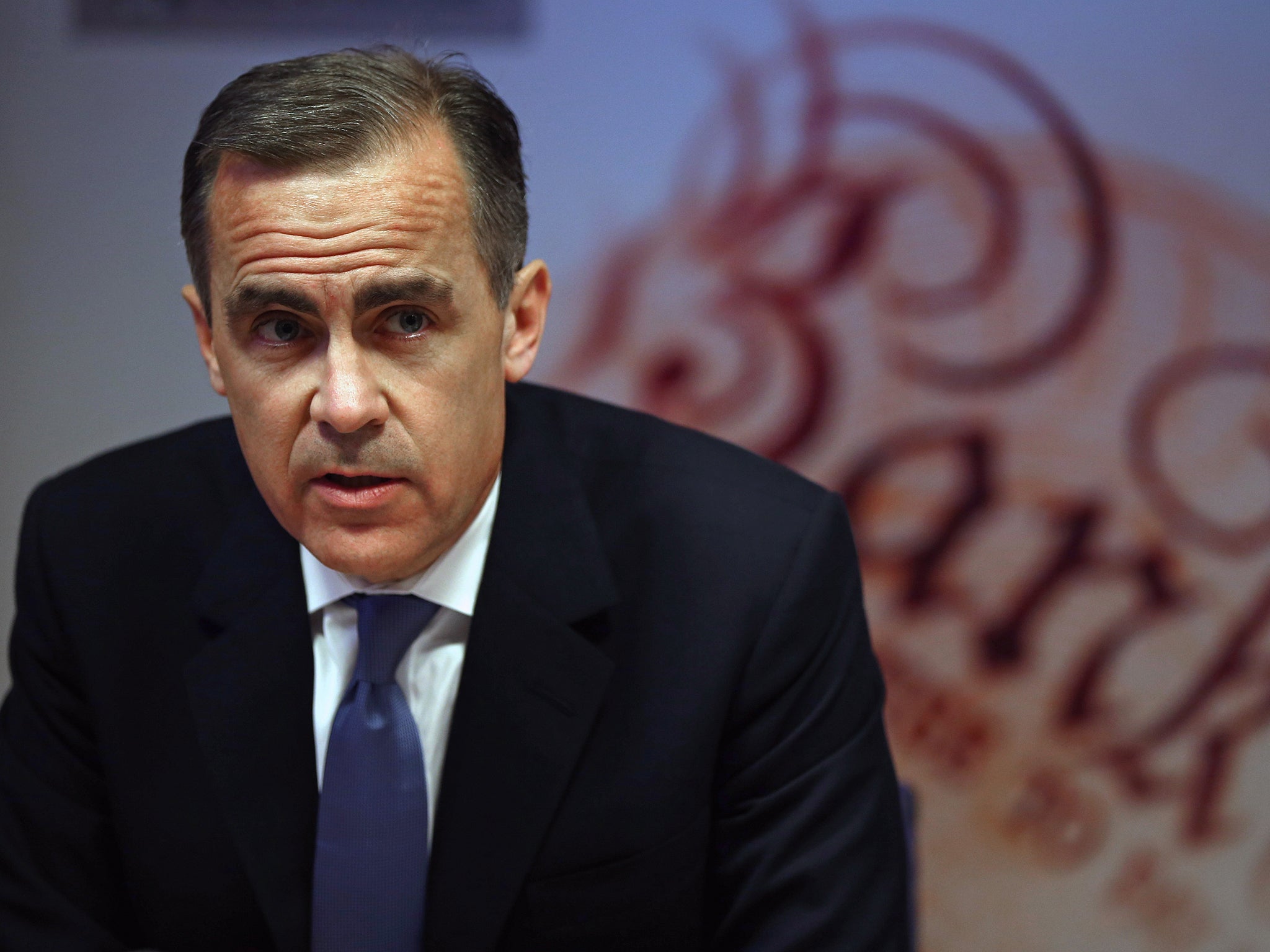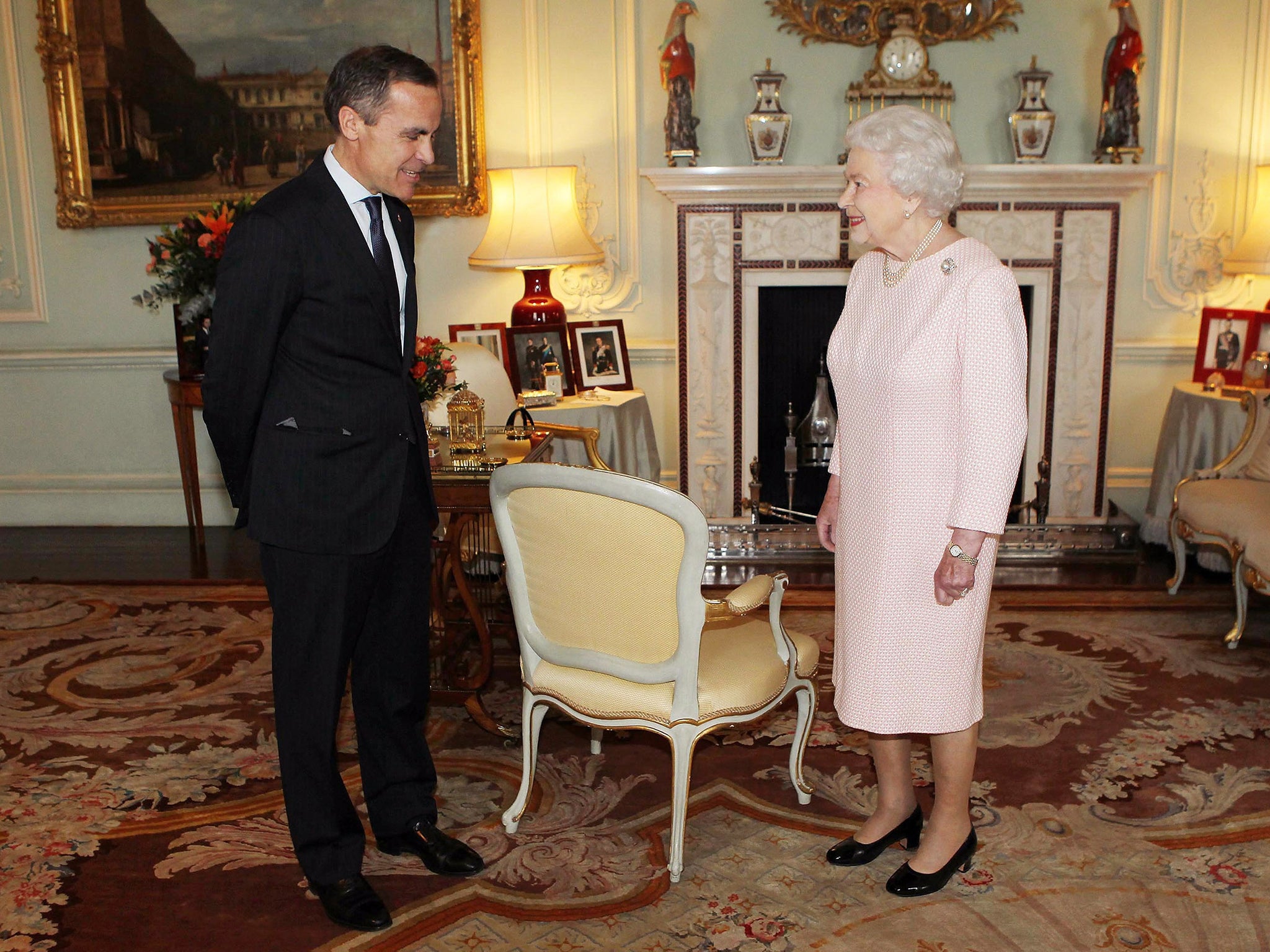Mark Carney interview: ‘We need to keep to tradition. At the same time we need to modernise’
The James Ashton Interview: The charismatic Canadian is now 18 months into his stint as Governor of the Bank of England. So how does he think he’s doing?

Your support helps us to tell the story
From reproductive rights to climate change to Big Tech, The Independent is on the ground when the story is developing. Whether it's investigating the financials of Elon Musk's pro-Trump PAC or producing our latest documentary, 'The A Word', which shines a light on the American women fighting for reproductive rights, we know how important it is to parse out the facts from the messaging.
At such a critical moment in US history, we need reporters on the ground. Your donation allows us to keep sending journalists to speak to both sides of the story.
The Independent is trusted by Americans across the entire political spectrum. And unlike many other quality news outlets, we choose not to lock Americans out of our reporting and analysis with paywalls. We believe quality journalism should be available to everyone, paid for by those who can afford it.
Your support makes all the difference.The lights are twinkling on the impressive Christmas tree in the Bank of England’s central atrium, a few yards behind the pink-coated gatekeepers who usher visitors in from the blustery City streets.
Like any office in mid-December, the festive season is in full swing here, with drinks parties and an alumni lunch filling the calendar. Mark Carney, the Bank’s Governor, works the room on these occasions, addressed simply as “Mark” by staff and regular visitors, but every now and again there’s a “Mr Governor” as he encounters someone sunscribing to the Bank’s old, buttoned-up ways.
Don’t mistake the conviviality for an institution that has broken up for the holidays, however. Tomorrow, stand by for a new round of stress tests on bank balance sheets. Only a few days ago, Carney, who plans a quiet Christmas with his wife Diana and four daughters at their home in West Hampstead, unveiled a new prong in his modernisation plan. In a bid to make what goes on behind the Sir John Soane-designed thick stone walls that bit more transparent, the 320-year old Bank intends to publish minutes from its interest rate-setting meetings immediately, “removing the present drip feed of news”, after recommendations from former Federal Reserve Governor Kevin Warsh. The bank will also release transcripts of the rate deliberations, albeit with an eight-year lag, and put out a cache of redacted minutes of meetings held during the financial crisis.
If Carney gets it right in his five years in charge at Threadneedle Street, those minutes will provide a history lesson that isn’t repeated. In his global role as chairman of the Financial Stability Board, he won support at the G20 summit in Brisbane last month for “too big to fail” measures that mean ailing banks should be able to go under quietly without threatening the wider financial system.
Some bankers gripe that a blanket of new regulation will neuter London’s leadership in financial services, but Carney is confident it can boost the City if tougher balance-sheet controls, pay clawbacks and criminal sanctions restore trust after a string of rate-rigging scandals. He says that “we are out at the front of the pack” in making City institutions safe. And with the continuing drip-feed of historical fines, the work to make markets “fair and effective” will be a big feature of 2015.
“If we do all that, with all the human capital and the expertise here in London, it reinforces London’s advantage. It is not why we do it, we do it because we have to.”
So says the central banker from central casting, the most powerful unelected figure in the country, whose George Clooney looks have enticed the public to give monetary policy and financial stability a second glance. Self-deprecating and sharp-suited, the Canadian has a smile that gleams and a steady gaze that’s fixed on his interlocutor as well as on the path ahead.

The economy has revived smartly on Carney’s watch, even if his flagship policy of forward guidance, which pegged an interest-rate rise from the current rock-bottom 0.5 per cent to the trigger of falling unemployment, was re-thought when the jobless total shrank faster than expected. Now, low inflation has pushed the first rate increase out to next autumn at the earliest.
Another key concern has been to make sure that the recent housing boom, especially in the south-east of England, doesn’t turn to bust. “Underwriting standards have held up pretty well,” Carney says. “In other words they [banks and building societies] have been pretty responsible… but every housing cycle, what happens is the responsible becomes reckless over time and that gives an additional boost for a year or two to housing and then you have the subsequent bust.”
It explains why the Bank used new powers last summer to cap very high loan-to-value loans, so that “if you are someone middle-aged like me” – Carney turns 50 next year – you are encouraged to borrow more reasonably.
Carney believes that George Osborne’s radical overhaul of stamp-duty charges in the Autumn Statement will provide a fillip to most of the housing market but slow it “at the top end” in the capital, adding that “most people in London don’t live in mansions”. He believes that “on the margin, a personal view, I would expect (the changes) to provide some support to the housing market… because 95 per cent of properties will see a reduction” in the amount of stamp duty paid.
He is careful to emphasise he has to set policy for the whole of the British economy. Carney made short work of touring every region of the UK in his first year, a cinch compared to covering the ground Canada, where he was Bank Governor previously.
Carney was born in Fort Smith in Canada’s frozen Northwest Territories, where his father, Bob, was the local high school principal. The family – including two brothers and a sister – moved to Edmonton when Carney was still small. He won a part-funded scholarship at Harvard to study English and Maths, but switched his focus to economics, playing ice hockey in his downtime. Demonstrating monetary discipline early on, Carney worked as a landscape gardener in the holidays.
It was working for Goldman Sachs that gave him some commercial nous and took him around the world for 13 years, but it was clear public service was calling. He was unfancied when he became Bank of Canada Governor in 2008, but he beat a more established candidate to the job and won plaudits for piloting the country through the financial crisis largely unscathed.
Such an achievement caught the eye of George Osborne, who was so keen to get his man that he allowed Carney to sign up for five years when the tenure was meant to be eight.
In making a return to London after 15 years living away, Carney has noticed “a steady improvement from culinary to cultural to sporting to leisure.” He occasionally runs to work or back home “like many other Londoners”. Otherwise, he is ferried around in a chauffeur-driven car complete with high-security phone line.
A few months before Carney arrived, an extra 1,300 staff were added from the defunct Financial Services Authority, giving the Bank vast powers. No wonder he insists that “it is not about me. We run the institution as the governors.” Carney explains that “there are six of us who manage the institution [Carney, four deputies and chief operating officer Charlotte Hogg] and then, as I say, delegate authority down from there.”
The flow of information from the engine room to the top has caught the Bank out in the past, to the extent its own staff are being investigated for possible market manipulation during the financial crisis. Now, by delegating more, Carney wants to see “individuals recognise when it is the right time to bring information, perspective, issues, back up the chain.”
There have been more changes: more women appointed to top jobs, including Minouche Shafik joining as a new Deputy Governor; the advent of plastic banknotes; and the end of the staff cricket day. And the Governor, keen to keep tabs on it all, ventures out of his office and hot-desks around the building every few weeks.
“You definitely keep the core traditions,” he says, listing the Bank’s architecture, the pink coats and a commitment to intellectual excellence, “but we have to continue to modernise”. Done correctly, by combining the powers at Carney’s disposal with London’s importance as a global financial centre and the Bank’s already weighty reputation, it should ensure the institution “punches above that considerable weight internationally and that helps shape global reforms”. With such an in-tray, that Christmas break will be over before it has begun.
The CV: Mark Carney
Education: Went to St Francis Xavier High School in Edmonton, Alberta, Canada, before going to Harvard University to read economics. Later, at St Peter’s College and Nuffield College, Oxford, received a PhD in economics.
Career so far: Spent 13 years at investment bank Goldman Sachs in London, Tokyo, Toronto and New York. Joined the Bank of Canada as a deputy governor in 2003, becoming Governor in 2008 after a three-year stint at Canada’s Department of Finance. Arrived in London as Bank of England Governor in July 2013.
Personal: Met his wife Diana, an economist and eco-friendly blogger, while studying at Oxford. They have four daughters and live in West Hampstead, London. “One of the consequences of being in this job is I do have a lot of meetings so my window for social time is relatively limited, but I am able to get to some of the theatre and sneak in to the odd football match,” he says. Enjoyed Kristin Scott Thomas as Electra at The Old Vic. Supports Everton.
Join our commenting forum
Join thought-provoking conversations, follow other Independent readers and see their replies
Comments